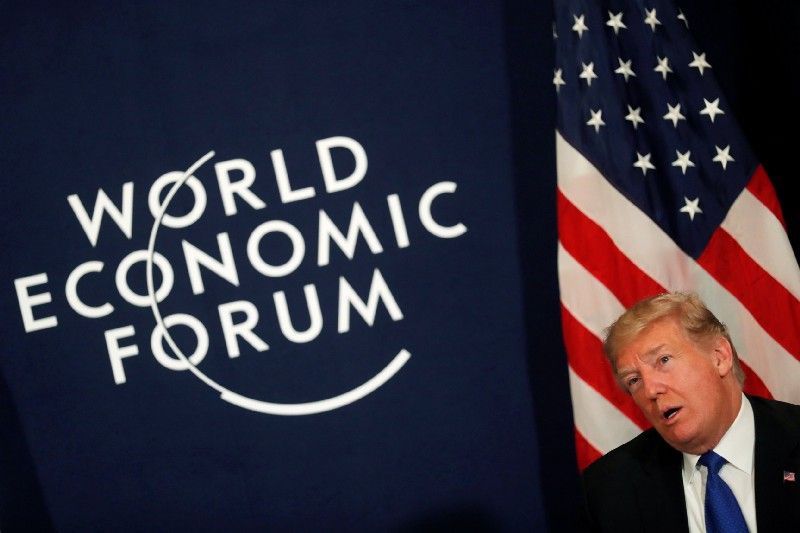January 26, 2018
Donald Trump is set to deliver two of the most interesting speeches of his presidency. The first will be delivered today at Globalist Disneyland, aka the World Economic Forum in Davos, Switzerland. His audience will consist mainly of political, business, and media VIPs from around the world. He’ll be following globalist-friendly speeches from India’s Narendra Modi, Germany’s Angela Merkel, and France’s Emmanuel Macron, among others.
Next Tuesday, he’ll deliver his first official State of the Union address to Congress. On that occasion, his audience will consist mainly of Republican lawmakers, Democrats who choose not to boycott him, and an American TV audience made up mainly of his supporters, if past addresses from past presidents are any guide.
In both speeches, it will be important to watch what the president has to say about China. This is the central US foreign-policy question of 2018. During his first year in office, Trump slow-rolled trade action against China with the hope that Beijing could help neutralize the North Korean nuclear threat. He hasn’t given up on that strategy, but having made little progress, we’re starting to seethe beginnings of a more confrontational posture toward China on trade. Chinese officials will parse both these speeches in search of risks and opportunities.
Trump has less at stake at Davos. He’ll benefit politically by showing his base back home that he tells truth to elites. On Capitol Hill, Trump won’t accuse China of “raping” the US economy, as he did on the campaign trail, but he will have a good story to tell on “unfair trade practices.” Some trade and investment actions against China have already been taken, and Trump looks set to roll out even more, as soon as Tuesday.
Are we headed for a trade war? That would be bad news for the US and worse news for China. Our bet is things won’t go that far, hostile rhetoric aside, because both sides know the other can inflict real economic and political pain, and no one wants a spiral that neither can fully control. But it seems clear now that US-Chinese relations are headed for a period of confrontation. We’ll be watching, especially during these two speeches, to measure the blast radius of Trump’s next move.
More For You
- YouTube
In this "ask ian," Ian Bremmer analyzes Trump’s recent meeting with Zelensky and how close (or far) Russia and Ukraine are from a peace deal.
Most Popular
- YouTube
Before turning to Top Risks 2026, Ian Bremmer looks back at how this year’s Top Risks 2025 actually performed.
Pro-democracy protesters carry portraits of North Yemen's late president Ibrahim al-Hamdi.
REUTERS/Khaled Abdullah
In the latest twist to Yemen’s decade-long civil war, a group of government ministers declared support for the UAE-backed Southern Transitional Council (STC), a rebel group that broke the war’s deadlock earlier this month by seizing control of the oil-rich Handramout region.
© 2025 GZERO Media. All Rights Reserved | A Eurasia Group media company.
